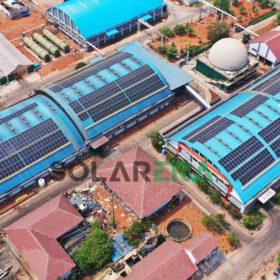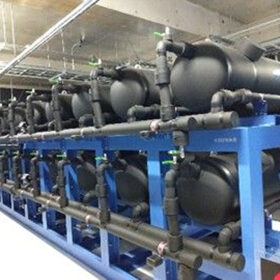Lithuania bans remote Chinese access to solar, wind, storage devices
Lithuania has decided to tighten its cybersecurity laws, banning manufacturers from countries deemed national security threats, including China, from remotely accessing management systems of solar, wind, and storage facilities. The European Solar Manufacturing Council has backed the move.
DGTR recommends anti-dumping duty on solar glass imports from China, Vietnam
India’s Directorate General of Trade Remedies (DGTR) has recommended an anti-dumping duty on solar glass imports from China and Vietnam after its investigation concluded that imports from these countries are undercutting the prices of the domestic industry. The landed value of the imports is below the selling price as well as the cost of the domestic industry.
Reliance Power claims ‘fraud’ by third party, to challenge SECI ban
In a stock exchange filing later today, Reliance Power said it will take all legal steps to challenge SECI’s action that bars the company from participation in future government tenders for three years.
Anil Ambani’s Reliance Power debarred from participating in SECI’s tenders for three years
The debarment follows the submission of a fake document by Reliance Power’s arm Maharashtra Energy Generation Ltd (the ‘bidder’), now known as Reliance NU BESS Ltd, in response to SECI’s tender for setting up 1 GW/2 GWh of standalone battery energy storage (BESS) projects.
First Solar warns global solar manufacturers of patent infringement
The U.S. solar panel manufacturer has sent letters to Longi, Trina Solar, Jinko Solar, JA Solar and Canadian Solar saying it believes the companies are infringing on its patents.
How will PV’s intellectual-property scuffles shake out?
Lawyers are doing brisk business as tunnel oxide passivated contact (TOPCon) solar technology moves into the mainstream. A series of patent infringement cases have been launched in the United States and Europe and their impacts are reverberating through the marketplace. How likely is it that winners will emerge?
WTO accuses China of low transparency on state subsidies, including solar
The World Trade Organization (WTO) Secretariat has criticized China for an alleged lack of transparency in its state support framework and has urged the nation to improve its subsidy notification process.
EU launches anti-subsidy investigation against Longi, Shanghai Electric
The European authorities are trying to determine whether two consortia – including subsidiaries of Longi and Shanghai Electric – violated the new EU rules on foreign subsidies when they participated in a procurement process in Romania for a 110 MW solar farm. The European Commission is expected to make a final decision within 110 working days.
Renewable energy developers applaud Supreme Court verdict on Great Indian Bustard protection
India’s apex court has relaxed restrictions on the construction of overhead transmission lines in the potential areas for renewable energy generation in Rajasthan and Gujarat. It has also constituted a new committee to identify measures and safeguards to be adopted in overhead transmission that can help conservation of Great Indian Bustard.
Amended Energy Conservation Bill to drive renewables adoption
The amended Energy Conservation Bill sets a minimum usage clause for non-fossil fuel by high carbon-emitting sectors such as power, transport, industry, and buildings. It also includes provisions to incentivize decarbonization efforts by allowing carbon trading.















